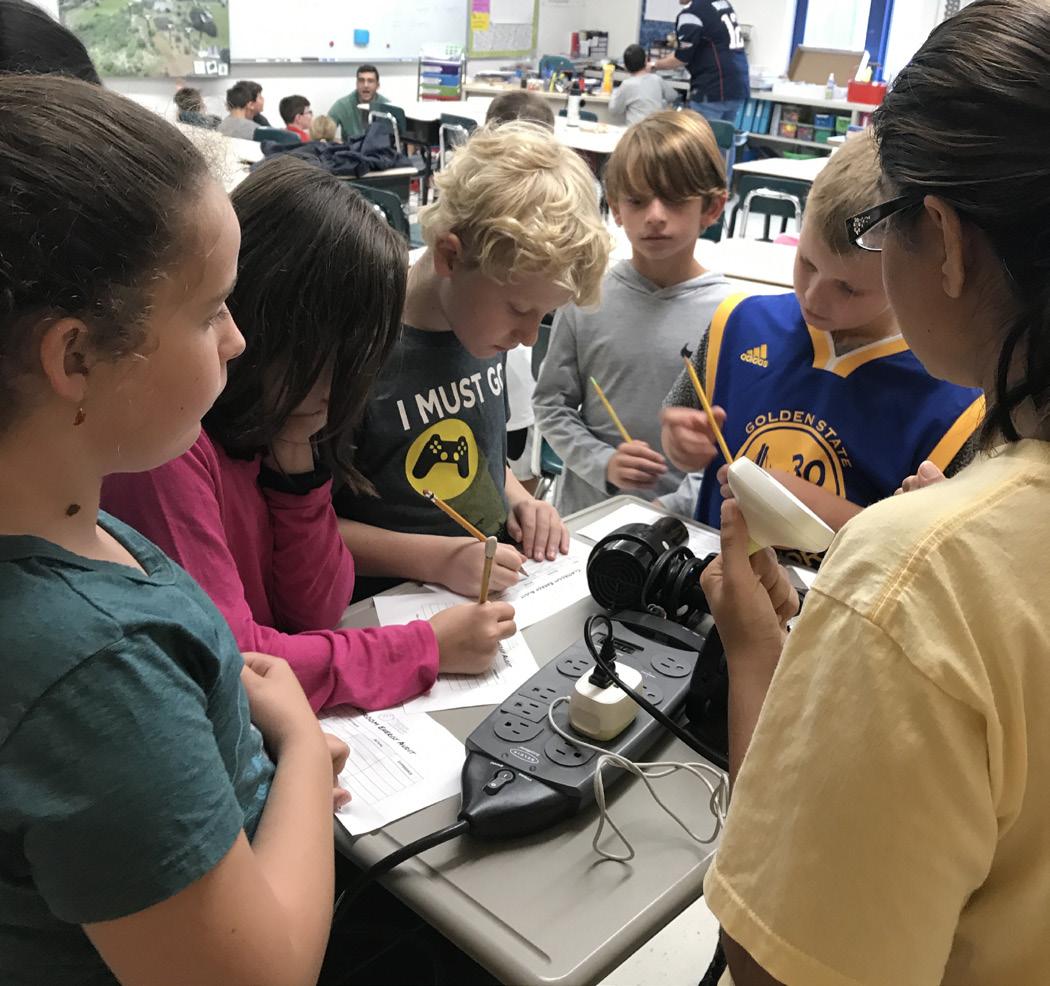
1 minute read
SUPERCHARGING THE CLASSROOM EXPERIENCE
By Deborah Drew
Change may not be so simple for many seeking to adjust some aspect of life, but tucked away in a small, yet dynamic space in Beverly, Mass., local non-profit Change is Simple is continually exploring ways to energize how elementary students on Massachusetts’ North Shore are learning about the science of sustainability – and making change simple – through its hands-on STEM programming.
Advertisement
Change is Simple began delivering its interactive program in a single classroom more than six years ago. Now, it annually reaches over 6,000 students in the Greater Boston area.
According to co-founders and program directors Patrick and Lauren Belmonte, the Change is Simple mission is simple: Inspire students to adopt lifelong environmental and social values by implementing a comprehensive sustainability education program within elementary classrooms.
As part of its program, Change is Simple also partners with Northeastern University to train and mobilize college science students to mentor elementary children in classrooms. While developing interest and skills in science, children learn how to live sustainably and become champions for sustainability at home and in their community. College students learn important mentoring, developmental and business skills as well.
The program also includes professional development that builds each teacher’s capacity to continue to integrate sustainability through STEM in their classrooms with confidence.
“The contribution Change is Simple has made to our schools is incredible. We have kids looking at the environment in a whole new way. It is everything you could want in a science program.”
– Principal, Woburn Public Schools
This fall, the National Grid Foundation awarded $16,000 to Change is Simple to support its “Energy Grid” and “Renewable Energy” portions of curriculum that will create energy awareness at the community level. With this funding, project-based learning will reach 1,230 students in 53 fourth grade elementary classrooms within the cities of Beverly, Salem, Woburn, and Lynn, Mass. and will be the main component of the STEM curriculum for half of the school year for these classrooms.
Each student will spend 20 hours on energyfocused, hands-on learning in school and at home. Students will become energy experts and leaders, educating their families as well. Students will conduct in-home energy audits and present their finding to families, along with advice on how to make positive changes.






